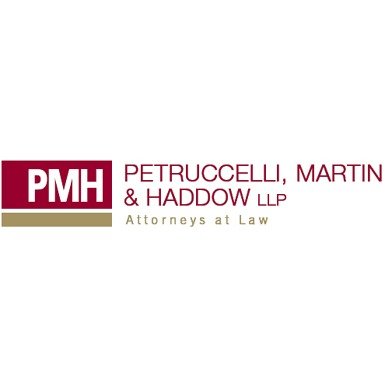Best Private Equity Lawyers in Maine
Share your needs with us, get contacted by law firms.
Free. Takes 2 min.
Or refine your search by selecting a city:
List of the best lawyers in Maine, United States
About Private Equity Law in Maine, United States
Private Equity law in Maine covers legal matters surrounding investments made by private equity funds, venture capitalists, and related investors into private companies. Unlike public markets, private equity transactions typically involve direct investments into private businesses, often aiming for growth, restructuring, or resale. Maine, while not a primary hub like New York or California, has a growing private capital market fueled by local entrepreneurship, regional banks, and boutique investment firms. The legal framework involves federal regulations, certain state-level requirements, and local business law procedures that shape how deals are structured, negotiated, and closed in Maine.
Why You May Need a Lawyer
Hiring a lawyer knowledgeable in private equity can be crucial due to the complex nature of investment deals and the legal exposure that may follow. Many individuals and entities in Maine seek legal counsel for purposes that include:
- Structuring and negotiating private equity transactions
- Ensuring regulatory compliance at both federal and state levels
- Drafting or reviewing investment documents and partnership agreements
- Conducting due diligence to uncover potential risks
- Advising on employment, compensation, and management issues post-investment
- Dispute resolution between investors, partners, or portfolio companies
- Selling or exiting from investments
- Navigating tax implications and optimizing structuring strategies
Given the high-value stakes and potential legal risks, legal advice is often indispensable throughout the life of a private equity investment.
Local Laws Overview
Private equity transactions in Maine are influenced by a combination of federal laws, such as the Securities Act of 1933, the Securities Exchange Act of 1934, and state-specific business and securities regulations. Key aspects include:
- Business Entity Formation and Compliance: Maine businesses must comply with the Maine Business Corporation Act and other regulations governing limited liability companies (LLCs), partnerships, and corporations.
- Securities Registration and Exemptions: Offers and sales of securities in Maine generally require registration, but private equity investments often use exemptions available under both federal and state law. The Maine Office of Securities oversees compliance and exemption filings.
- Employment and Labor Laws: Investments often involve changes to the management structure, so compliance with state labor laws and contracts is critical.
- Tax Considerations: Private equity funds and portfolio companies must navigate Maine’s state and local tax laws, in addition to federal considerations.
- Antitrust and Competition Law: Larger deals may attract scrutiny under state or federal antitrust laws, especially if they could impact competition in regional markets.
- Environmental and Industry-Specific Regulations: Certain industries in Maine, like fisheries, forestry, or healthcare, have unique regulatory requirements that must be addressed during private equity acquisitions.
Staying informed of these and other legal requirements is essential for successful private equity transactions in Maine.
Frequently Asked Questions
What is private equity?
Private equity refers to investment funds typically organized as limited partnerships that buy, invest in, or restructure private companies, with the aim of growing their value and eventually selling them for a profit.
Does Maine have any unique private equity laws?
While much of private equity law comes from federal regulations, Maine has its own requirements for registering securities, forming business entities, and complying with state-specific industry regulations.
Do private equity investments in Maine require registration with the state?
Most private equity investments rely on exemptions from registration, but certain filings and notices may still be required with the Maine Office of Securities.
What should investors look for in a private equity agreement?
Investors should carefully review terms related to control, exit rights, fees, distributions, management structure, and dispute resolution provisions.
How are private equity funds structured in Maine?
Most private equity funds use limited partnerships or limited liability companies, offering liability protection to investors and flexible tax treatment.
Can private equity funds invest in any type of Maine business?
Generally, yes, but certain regulated industries might have restrictions or require special approvals when ownership changes hands.
What due diligence is required for private equity deals in Maine?
Due diligence often covers financial health, legal compliance, employment matters, real estate, intellectual property, environmental issues, and any pending litigation.
How are disputes typically resolved in private equity transactions?
Many private equity agreements include mandatory arbitration or mediation clauses, but disputes can also be litigated in Maine state or federal courts.
What are the common fees associated with private equity funds?
Fees often include management fees, carried interest for fund managers, administrative expenses, and sometimes performance-based fees.
Do private equity investors pay taxes in Maine?
Yes, investors must pay taxes on income or gains realized in Maine, and careful tax planning with a lawyer or tax specialist is strongly advised.
Additional Resources
If you are seeking more information or help regarding private equity in Maine, consider these resources:
- Maine Office of Securities - Regulates securities offerings and provides information on compliance and exemptions.
- Maine Department of Economic and Community Development - Offers guidance and resources to investors and business owners.
- Maine State Bar Association - Can refer you to attorneys with expertise in private equity and business law.
- Small Business Administration (SBA) - Maine District Office - Provides resources for business financing, including private investment.
- Local Chambers of Commerce - Can connect you with business resources and networking opportunities relevant to private equity.
Next Steps
If you are considering a private equity investment or are involved in a transaction in Maine, here are recommended steps:
- Identify your goals and the specifics of your investment or business opportunity.
- Collect all relevant documents, including business plans, financial statements, and any current agreements.
- Contact a Maine-based attorney who specializes in private equity or business transactions. The Maine State Bar Association and local business groups can help with referrals.
- Schedule a consultation to outline your needs, risks, and possible legal strategies.
- Maintain ongoing communication with your lawyer throughout the process, and ensure all documents and filings comply with applicable federal and state laws.
Navigating private equity transactions requires careful legal planning and expertise. Taking timely action and relying on professional legal advice is the best way to protect your interests in Maine.
Lawzana helps you find the best lawyers and law firms in Maine through a curated and pre-screened list of qualified legal professionals. Our platform offers rankings and detailed profiles of attorneys and law firms, allowing you to compare based on practice areas, including Private Equity, experience, and client feedback.
Each profile includes a description of the firm's areas of practice, client reviews, team members and partners, year of establishment, spoken languages, office locations, contact information, social media presence, and any published articles or resources. Most firms on our platform speak English and are experienced in both local and international legal matters.
Get a quote from top-rated law firms in Maine, United States — quickly, securely, and without unnecessary hassle.
Disclaimer:
The information provided on this page is for general informational purposes only and does not constitute legal advice. While we strive to ensure the accuracy and relevance of the content, legal information may change over time, and interpretations of the law can vary. You should always consult with a qualified legal professional for advice specific to your situation.
We disclaim all liability for actions taken or not taken based on the content of this page. If you believe any information is incorrect or outdated, please contact us, and we will review and update it where appropriate.
Browse private equity law firms by city in Maine
Refine your search by selecting a city.














